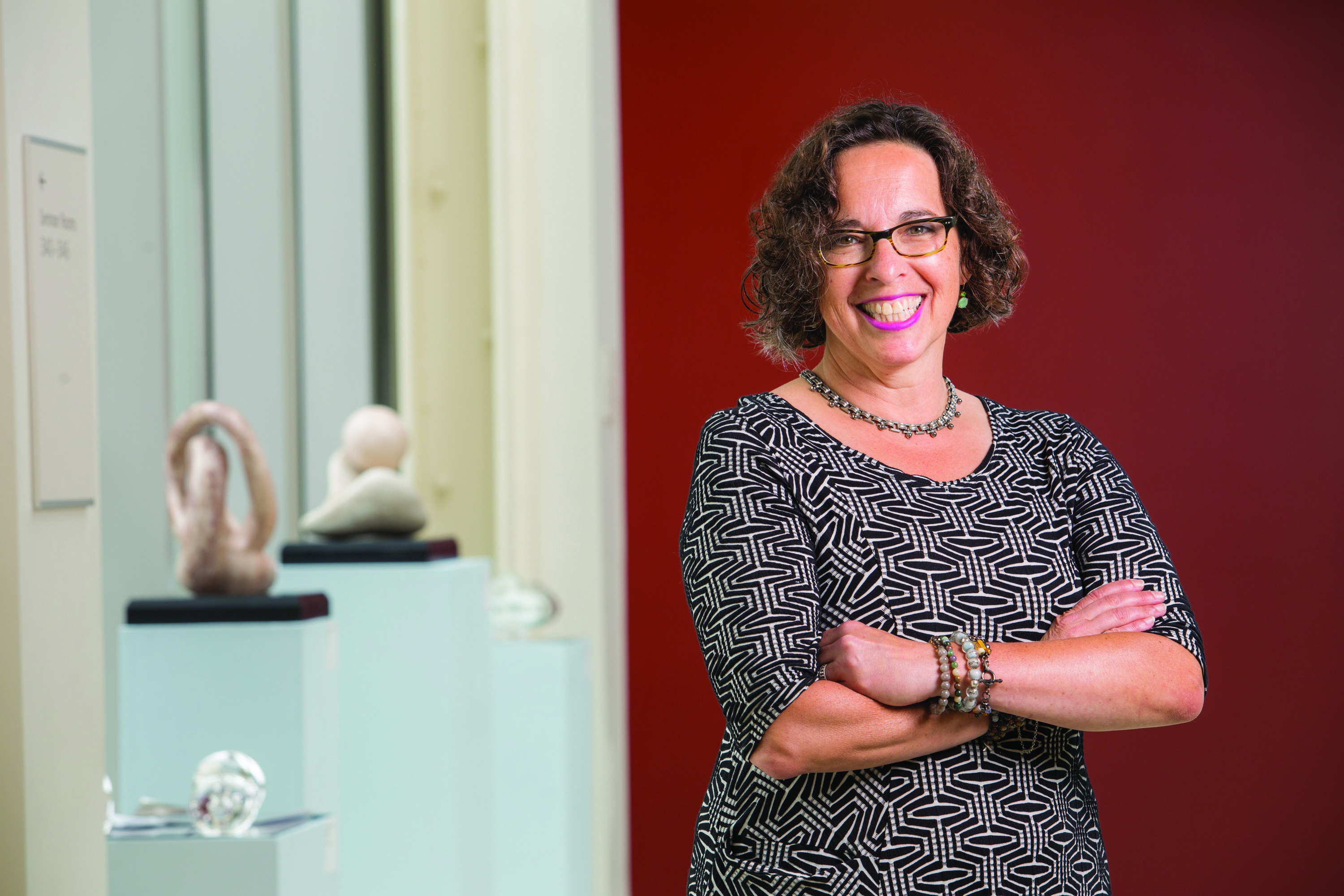
Celebrating students who exemplify what it means to provide humanism in patient care will be the focus of an upcoming Oakland University event featuring renowned medical educator Hedy Wald, Ph.D.
The Faircloth Evening of Medical Humanism is set for March 2, and is co-sponsored by Oakland University William Beaumont School of Medicine and Oakland University School of Education and Human Services. Medical students and residents will be inducted into the Gold Humanism Honor Society, and the SEHS Department of Counseling will present its student awards.
Wald, clinical professor of Family Medicine at Warren Alpert Medical School of Brown University, and faculty member at Harvard Medical School Global Pediatrics Leadership Program, will be the keynote speaker. Her presentation is called “Holocaust & Medicine Education for Humanistic Professional Identity Formation: A Holocaust Survivor’s Daughter Teaches German Medical Students at Auschwitz – My Story.”
The Faircloth Evening of Medical Humanism is dedicated to Patrick Faircloth, Ph.D., an Oakland University alumnus, who created an endowment for OUWB and SEHS as a way to recognize medical students who work to be compassionate physicians by strengthening communication and interpersonal skills.
Wald said her topic is fitting for an event that focuses on humanism in patient care, and she praised Oakland University for embracing the subject as it relates to the concept of humanism.
“That’s huge,” she said. “People need to start following the lead of those who get it right — like Oakland University William Beaumont School of Medicine and Oakland University School of Education and Human Services.
“Because to get it right, you have to pay attention to history and think about the legacy, and what we are going to do moving forward,” she said.
Wald has been honored with Dean’s Excellence in Teaching Awards, served as a Fulbright Scholar in medical education for the Ben Gurion University of Health Sciences Faculty of Medicine in Israel, and is a Gold Humanism Foundation Harvard-Macy Scholar.
She presents invited keynotes, plenaries, and experiential workshops for faculty retreats, trainee sessions, and international conferences on promoting resilience, well-being, and vitality in health professions education and practice, a research interest.
She presents internationally on reflective writing-enhanced reflection to support professional identity formation in health professions education and has published widely on the topic, including guest editing a collection of articles for an Academic Medicine theme issue on professional identity formation.
Frameworks for assessing reflection and for guiding faculty in crafting quality written feedback to students’ reflective narratives that Wald helped develop are currently in use worldwide within health professions education. Her creative writing, reviews, and poetry have appeared in literary and medical journals as well as medical education blogs. Her work has been cited in the New York Times, Wall Street Journal, Los Angeles Times, Chicago Tribune, Medical Independent (Ireland), and Jerusalem Post.
Generally speaking, Wald said she uses the Holocaust as the primary example of what can happen with physicians’ abandonment of moral principles and their abuse of power within societal forces leading them to disregard what drove them to become doctors in the first place.
“This was not just a few mad men who did experiments,” she said in reference to physicians that helped carry out Nazi atrocities. “This was active involvement of individual physicians and the medical/scientific establishment from beginning to end. The ethics at the time changed and became ‘there are lives unworthy of living.’ How could health professionals become killers?”
It’s a lesson that should never be forgotten, she said, and one that hits home especially hard for her as the daughter of a Holocaust survivor.
“This history must be core to any health professional education — you must grapple and reflect on this,” she said. “It’s not just a few slides in an ethics course and let’s move on. This is thinking about how you internalize these ethics. How do I think about myself as a health professional? What are my values going forward? How will I be a future leader?’”
Jason Wasserman, Ph.D., associate professor, Department of Foundational Medical Studies and Department of Pediatrics, OUWB — and Faircloth coordinator — said Wald is an ideal keynote speaker for the event because “she's been at the forefront of pushing for the inclusion of the Holocaust and its lessons in medical education.”
“Medicine was complicit in the atrocities of Nazi Germany in unprecedented ways, and there is much to learn about how and why that happened,” he said. “At a time when knowledge about Holocaust history is decreasing, this is an especially important endeavor. The Holocaust was one of the most inhuman moments of human history, so I can't think of a better topic or better speaker for an event focused on humanism in medicine.”
The evening will also include the induction of 17 OUWB medical students and six Beaumont Health residents into the Gold Humanism Honor Society (GHHS).
GHHS recognizes students, residents, and faculty who are exemplars of compassionate patient care and who serve as role models, mentors and leaders in medicine.
“OUWB prides itself on promoting humanism in its curricula and graduating physicians who will carry humanism forward into practice,” Wasserman said.
He said induction into the Gold Humanism Honor Society recognizes students and residents who have been exemplars of this.
“These are students and residents who have demonstrated a level of commitment to caring for patients and communities that they were nominated by their peers for this recognition,” he said. “They truly represent the mission, vision, and values of OUWB.”
More than 100 people are expected to attend the event, including several deans as well as Oakland University President Ora Hirsch Pescovitz, M.D. Attendance at the Faircloth Evening of Medical Humanism is upon invitation only.

